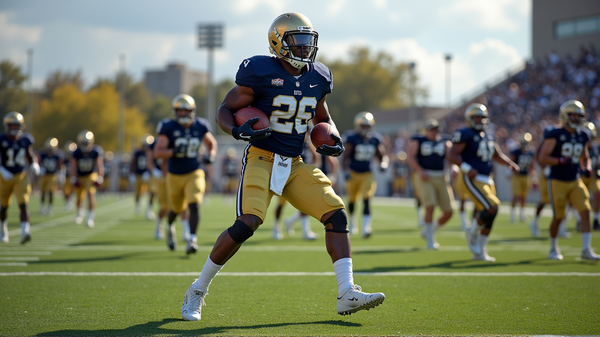Rich Eisen's Dire Predictions for the Future of College Football
The Tennessee Debacle Sparks Concerns
College football is embroiled in controversy after the unexpected separation between the Tennessee Volunteers and their star quarterback Nico Iamaleava. The situation has become a focal point for debates concerning the NIL (Name, Image, and Likeness) changes sweeping through the sport. Fans, analysts, and stakeholders alike are questioning where these changes will lead college athletics.
Rich Eisen Weighs In
Prominent NFL Network analyst, Rich Eisen, has shared his concerns about the implications of the current NIL structure on his award-winning talk show. Eisen champions athletes’ rights to earn, comparing it to the free movement of coaches in search of better opportunities. According to Sports Illustrated, he stated, “Coaches have buyouts, and they depart… Why can’t players do it?”
Eisen’s Concerns About NIL Chaos
While Eisen stands by athletes’ autonomy, he expressed significant apprehension about the absence of regulations within the NIL arrangement. “There doesn’t appear to be any rules,” Eisen lamented. He highlighted the need for a unifying framework, warning that without it, the sport could face catastrophic consequences.
The Risk of Fragmentation
Eisen paints a grim future, suggesting that if regulations aren’t established soon, college football could fracture entirely. He forewarns of a scenario where affluent schools might abandon the current NCAA structure, leaving others in a relegated state. This potential split raises alarms about fairness and the spirit of competition within the sport.
Hope for Resolution
Rich Eisen echoes a growing sentiment that urgent action is needed to prevent irreversible damage. As conversations around NIL’s impact intensify, the hope is for swift intervention by the NCAA and universities to create a sustainable and fair landscape for college athletics.
The narrative around NIL is increasingly pivotal, urging a balance between athlete empowerment and the preservation of collegiate integrity. Will the involved parties heed these ominous warnings, or is college football on an unchangeable path to change forever?




